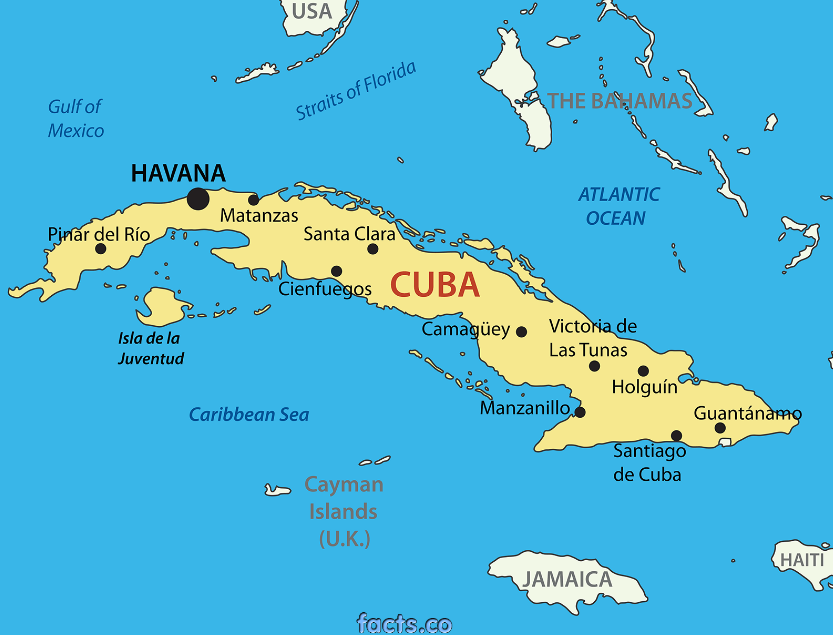Article Courtesy: tradeonlytoday.com | By: Peter Swanson | Originally published: June 27, 2016 | Please click here for original article.
[responsive] [/responsive]
[/responsive]
Common sense has finally prevailed. Pantaenius, a U.S. marine insurer, said it will offer coverage for American boats traveling in Cuban waters. This eliminates a major barrier to cruising and fishing in Cuba, in my opinion.
Ten months ago, the division of the U.S. Treasury Department that regulates interactions with Cuba under the U.S. embargo announced that U.S. citizens with a legal reason to travel to Cuba could do so by boat — their own boat. However, the regulations did not permit U.S. insurers to offer hull insurance.
Thus insurance issues have proved the major disincentive for the many American boaters dreaming of visiting Cuba. This was true when AIM Marine Group, parent company of Soundings Trade Only, organized a rally that went to Cuba in April and as articulated to us by the many boaters who have sought to visit the island nation on their own.
Pantaenius is a German insurer with a U.S. division. Cary Wiener, the president of Pantaenius USA, said his legal team petitioned OFAC months ago, seeking a change in regulations to allow his company to pay claims that happened in Cuban waters. The problem was an embargo prohibition on paying dollars to Cuban government entities or individuals.
OFAC, which stands for the Office of Foreign Assets Control within the U.S. Treasury, recently updated its online Frequently Asked Questions page with this language:
- May persons subject to U.S. jurisdiction provide certain insurance-related services (such as cargo or hull insurance, or reinsurance) to persons subject to U.S, jurisdiction who are engaging in authorized activity in Cuba?
Where the provision of insurance-related services is directly incident to activity authorized by general or specific license, then the provision of such services is authorized as well …
And:
- Does a person subject to U.S. jurisdiction require an OFAC specific license to pay an insurance claim that arises from authorized activity in Cuba if the payment involves a Cuban national?
Where the provision of insurance-related services is authorized by general license, either expressly or as a transaction ordinarily incident to a licensed transaction, this authorization extends to the payment or settlement of claims, including to a Cuban national.
Pantaenius may have stolen a march on the competition, but it is certain its advantage will be short-lived because U.S. insurers, such as AIG and the Gowrie Group, also have demonstrated their interest in the market for Cuba coverage.
Wiener says Pantaenius offers a navigation area for Florida and the Caribbean, which has heretofore excluded Cuba. Now, he says, customers will be able to “buy back” Cuba coverage for up to 20 days for an additional 10 percent of their total premiums with a $500 minimum. (Pantaenius only covers boats valued at $200,000 or more.)
If that seems steep, consider Pantaenius’ rationale. Wiener says he believes that many damage claims short of a total loss will require that the vessels in question be towed back to Florida for repairs because of the lack of marine infrastructure in Cuba and remaining obstacles in the embargo.
According to Wiener, Pantaenius will require applicants for Cuba coverage to affirm that they qualify for one of the 12 so-called “general licenses” that let U.S. citizens travel legally to Cuba — no different than what the travel agencies require to book air travel to the island.
AIM’s rally participants, for example, qualified under the “people-to-people” educational license. Another popular license for Americans with boats is international competitions, such as sportfishing tournaments and sailing regattas.
Wiener says the customers will affirm that they are traveling to Cuba legally and will abide by U.S. regs, but Pantaenius will not investigate further. The company’s honor system for applicants reflects the U.S. government’s own almost non-existent enforcement policy.
What boaters have done until now — those not brave enough to go “naked,” or uninsured — is to purchase a policy from a “London syndicate” such as Lloyd’s. In my own case this represented an increase in the cost of my boat, valued at $65,000, from $1,400 a year to $2,100. Lacking a presence in the U.S. market, these syndicates operate outside the confines of the U.S. embargo, although some experts will debate that point.
One of the participants in AIM Marine’s program, “Rallies to Cuba: Learn the Lingo,” says he paid an additional $8,000 for syndicate coverage of his boat during the rally. That’s a lot, considering the risk. The only period during which his previous insurer would have declined a claim consisted of transit from the Cuba 12-mile limit to the docks of Marina Hemingway, where it would remain for two weeks before heading back to international waters.
All in all, this is a huge improvement and is certain to fuel further exploration of Cuba’s coast by America’s boaters. The downside is that Havana’s only marina likely will be overtaxed in the immediate future as it struggles to expand the number of berths. And it’s very bad news for those brokers who have been making hay while the sun shines, selling Lloyd’s policies.





